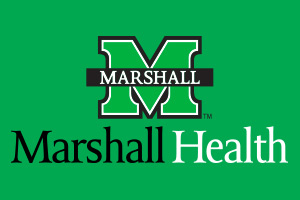Specialists at Marshall Health offer comprehensive care and support to individuals and families affected by amyotrophic lateral sclerosis (ALS). Specialists in our ALS Clinic offer personalized treatments aimed at making the most of each day. Our holistic, multidisciplinary approach to care ensures less time in the clinic and more time enjoying cherished activities and loved ones.
Signs and Symptoms
Amyotrophic lateral sclerosis (ALS), also known as Lou Gehrig's disease, occurs when motor neurons in your brain and spinal cord stop working. As ALS progresses these nerve cells die, and your brain loses the ability to tell your muscles what to do, resulting in muscle weakness, difficulty moving, speaking, and breathing.
The symptoms of ALS progress over time and can vary from person to person, but most often include:
- Progressive muscle weakness
- Muscle twitching (fasciculations) and muscle cramping
- Muscle stiffness (spasticity)
- Falling due to balance problems or tripping
- Slurred speech and difficulty swallowing
- Unintended weight loss
- Shortness of breath during physical exertion or when lying down flat
- Changes in personality and/or decline in cognitive ability
ALS is a progressive disease, meaning that symptoms typically worsen over time as the condition advances. The rate of progression can vary significantly from person to person, with some experiencing a more rapid decline in function than others. Currently, there is no cure for ALS and typical life expectancy ranges from 2-5 years though about 1 in 10 patients may live up to 10 years. Various treatments and supportive therapies can help manage symptoms, improve quality of life and prolong survival.
“I have attended the Marshall ALS Clinic literally since day one of my ALS diagnosis. I have consistently been treated professionally and compassionately by the doctors and staff. I cannot imagine a better place or experience in coping with this overwhelming disease. I am so very grateful to be seen by this amazing team led by Dr. Hollinger!” —Patient living with ALS
Patient-Centered ALS Care
At Marshall Health, we understand how challenging living with ALS can be, both physically and emotionally. That is why we are dedicated to providing compassionate, patient-centered care that focuses on improving quality of life and supporting patients and their families every step of the way.
“In the midst of a devastating diagnosis, the Marshall ALS Clinic is an oasis of hope, love, and understanding! We are fortunate to have such devoted and caring providers!”
—Family member of a patient living with ALS
The Marshall University ALS Clinic offers a wide range of services to support patients and families throughout their journey with ALS, including:
- Medical Management: Our neurologist specializes in the diagnosis and management of ALS, providing personalized treatment plans to help slow disease progression and manage symptoms.
- Rehabilitation Services: Our team of physical therapists, occupational therapists and speech therapists work together to identify adaptive strategies and equipment to maintain independence, improve communication and enhance quality of life.
- Respiratory Support: Our pulmonologists and respiratory therapists are experts in managing respiratory complications associated with ALS, providing respiratory assessments, breathing support, and education on ventilation options.
- Nutritional Counseling: Our registered dietitians offer nutritional assessments and counseling to ensure patients receive adequate nutrition to maintain strength and energy levels.
- Psychosocial Support: Our social workers, nursing and licensed counseling provide emotional support, counseling, and assistance with navigating the health care system, financial resources, and community support services.
- Neuropsychology: Our neuropsychologists are trained to recognize cognitive, mood and behavioral changes associated with ALS.
- Pharmacy: Our clinical pharmacist works alongside our neurologist to develop a medication regimen focused on slowing disease progression and managing symptoms of ALS.
- Educational Resources: We provide educational resources and support programs for patients, caregivers, and health care professionals to help them better understand and manage ALS.
- Clinical Trials: Our ALS clinic is not currently offering onsite clinical trials. If becoming involved in a clinical trial is of interest to you, our neurologist will counsel you on what trials you may qualify for and can arrange referral to an appropriate clinical trial. Our clinic can continue to manage your day-to-day ALS care even if you enter a clinical trial at another center.
APPOINTMENTS & REFERRALS
To schedule an appointment with the Marshall University ALS Clinic, call the Marshall Speech & Hearing Center at 304.696.3246.
Clinical Interests:
Locations:
